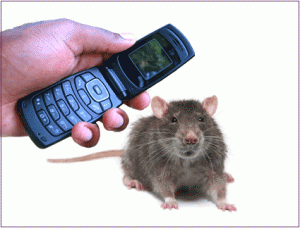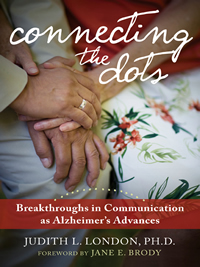Published: February 15, 2010
The BBC reports on a study by Cambridge scientists that has identified a gene that may give you an increased risk of a distressing early form of dementia.
Fronto-temporal dementia (FTD) is the second most common type of dementia in the under 65s and can result in a complete personality change. link to read full report
Source:BBC
Published: January 12, 2010
 The millions of people who spend hours every day on a cell phone, may have a new excuse for yakking. A surprising new study in mice provides the first evidence that long-term exposure to electromagnetic waves associated with cell phone use may actually protect against, and even reverse, Alzheimer’s disease. The study, led by University of South Florida researchers at the Florida Alzheimer’s Disease Research Center (ADRC), was published today in the Journal of Alzheimer’s Disease. [continue reading…]
The millions of people who spend hours every day on a cell phone, may have a new excuse for yakking. A surprising new study in mice provides the first evidence that long-term exposure to electromagnetic waves associated with cell phone use may actually protect against, and even reverse, Alzheimer’s disease. The study, led by University of South Florida researchers at the Florida Alzheimer’s Disease Research Center (ADRC), was published today in the Journal of Alzheimer’s Disease. [continue reading…]
Published: January 9, 2010
A milkshake that promises to boost the memory of Alzheimer’s patients could be available within two years.
 Souvenaid is a multi-nutrient drink designed to improve cognitive function and is the result of more than ten years of research and development into the potential role of medical nutrition in neurological diseases. The first clinical trial took place between 2006 and 2008. The results of this trial,demonstrating proof of concept, are being published in the January 2010 issue of the peer-reviewed journal Alzheimer’s & Dementia.
Souvenaid is a multi-nutrient drink designed to improve cognitive function and is the result of more than ten years of research and development into the potential role of medical nutrition in neurological diseases. The first clinical trial took place between 2006 and 2008. The results of this trial,demonstrating proof of concept, are being published in the January 2010 issue of the peer-reviewed journal Alzheimer’s & Dementia.
One of the features of a brain with Alzheimer’s disease is the loss of synapses, which are junctions between two neurons or between a neuron and a muscle. Research suggests some connection between low numbers of synapses in a person’s brain and Alzheimer’s symptoms such as memory impairment and language deterioration.
Souvenaid® is a once-a-day nutritional drink designed to build nerve connections in the brain linked to memory function. Souvenaid® was shown in a clinical trial to improve memory in patients in the early stages of Alzheimer’s Disease. Souvenaid® contains Fortasyn™ Connect, a patented combination of nutrients that interact to help build brain synapses.
Source: Nutricia
Published: November 9, 2009
 People with advancing Alzheimer’s face difficulty in communicating in a conventional way.
People with advancing Alzheimer’s face difficulty in communicating in a conventional way.
If you have a loved one in the middle or late stages of Alzheimer’s disease, you know how frustrating and difficult it can be to communicate. But it’s not impossible to maintain a real relationship with your friend or family member, even as his or her Alzheimer’s advances.
In more than sixteen years of work with Alzheimer’s patients and their families, author Judith London has learned how to ‘connect the dots’ of scattered information offered by people with Alzheimer’s so that loved ones can understand the depth of feeling still present in them. Connecting the Dots: Breakthroughs in Communication as Alzheimer’s Advances reveals London’s practical techniques for decoding the language of Alzheimer’s to improve communication. With this book as your guide, you can better navigate your relationship with your loved one and keep a meaningful connection.
reveals London’s practical techniques for decoding the language of Alzheimer’s to improve communication. With this book as your guide, you can better navigate your relationship with your loved one and keep a meaningful connection.
Source: New Harbinger Publications
 The millions of people who spend hours every day on a cell phone, may have a new excuse for yakking. A surprising new study in mice provides the first evidence that long-term exposure to electromagnetic waves associated with cell phone use may actually protect against, and even reverse, Alzheimer’s disease. The study, led by University of South Florida researchers at the Florida Alzheimer’s Disease Research Center (ADRC), was published today in the Journal of Alzheimer’s Disease.
The millions of people who spend hours every day on a cell phone, may have a new excuse for yakking. A surprising new study in mice provides the first evidence that long-term exposure to electromagnetic waves associated with cell phone use may actually protect against, and even reverse, Alzheimer’s disease. The study, led by University of South Florida researchers at the Florida Alzheimer’s Disease Research Center (ADRC), was published today in the Journal of Alzheimer’s Disease. 


